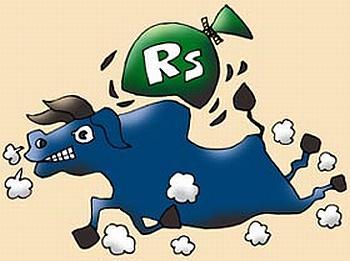
With so many equity funds available, how does one go about selecting the right one? Larissa Fernand tells you just that.
The starting place must always be your portfolio. If you are not clear on what it is you want, you will end up shovelling money into the best performers.
Is your portfolio large-cap heavy and you need a mid-cap fund?
Are you packed with sector funds and want a diversified equity holding?
Conversely, are you looking at exposure to a particular theme or sector?
Unless you are extremely focused on what you are hunting for, you will end up selecting a fund based on solely performance.
I am not suggesting that you ignore performance. It probably could be the most influential filter when selecting a fund. And as one of the only ways to quantify a fund's worthiness, it is difficult to ignore.
In fact, examining a fund's percentile ranking within its category over a long-term period, such as 5 or 10 years, is a good place to start. But you should also view performance in the light of the fund manager's tenure.
How has the fund performed under the current manager? If a fund has a great 10-year record but the manager responsible for that record has recently left, one should be more cautious than if the manager were still in place.
On the other hand, a fund with poor or mediocre long-term returns may look more promising if a new manager with a good track record has recently come on board.
Take a look at the fund's strategy.
Does the fund manager stick to the stated approach, or does he abandon the strategy when the market disagrees? Does he display conviction in his process or does it indicate a lack of confidence?
If it is a value fund, does the fund manager stay loyal to his investment mandate even when growth stocks are ruling and his fund's performance is being punished?
Look under the hood. Even if it is a diversified equity fund, does the fund manager tilt towards smaller-cap stocks?
Are the top holdings easily recognisable names?
Are they concentrated bets?
Also check the performance over specific periods in the market to see if it is in sync with the fund's strategy.
Does the fund hold well on the downside or dip abysmally?
If there's no rhyme nor reason when the fund does well and when it does not, it could be an indication of an idiosyncratic strategy.
The pedigree of the asset management company, or AMC, matters too. A low turnover of the management team indicates that the fund is able to retain talent and, thereby, consistency. Is the AMC focused on short-term performance? An AMC which launches gimmicky or trendy funds is likely to be more focused on its bottom line.
While it is unrealistic to expect an AMC not to want to make a profit, it's an indication of the company's character -- stewardship or salesmanship?
Finally, take a look at the expense ratio.
A cheaper fund need not be better. The price has to be seen relative to other factors, such as those mentioned earlier. To ensure that the fund is a viable proposition, compare the expense ratio with other funds from the same category. Once that is done, opt for the inexpensive one, all other factors being equal. However, more than equity, this is all the more relevant in the case of debt funds.
Remember, there is no single data point that will tell you all you need to know. Look at the fund from all the above angles.
Illustration: Dominic Xavier/Rediff.com











